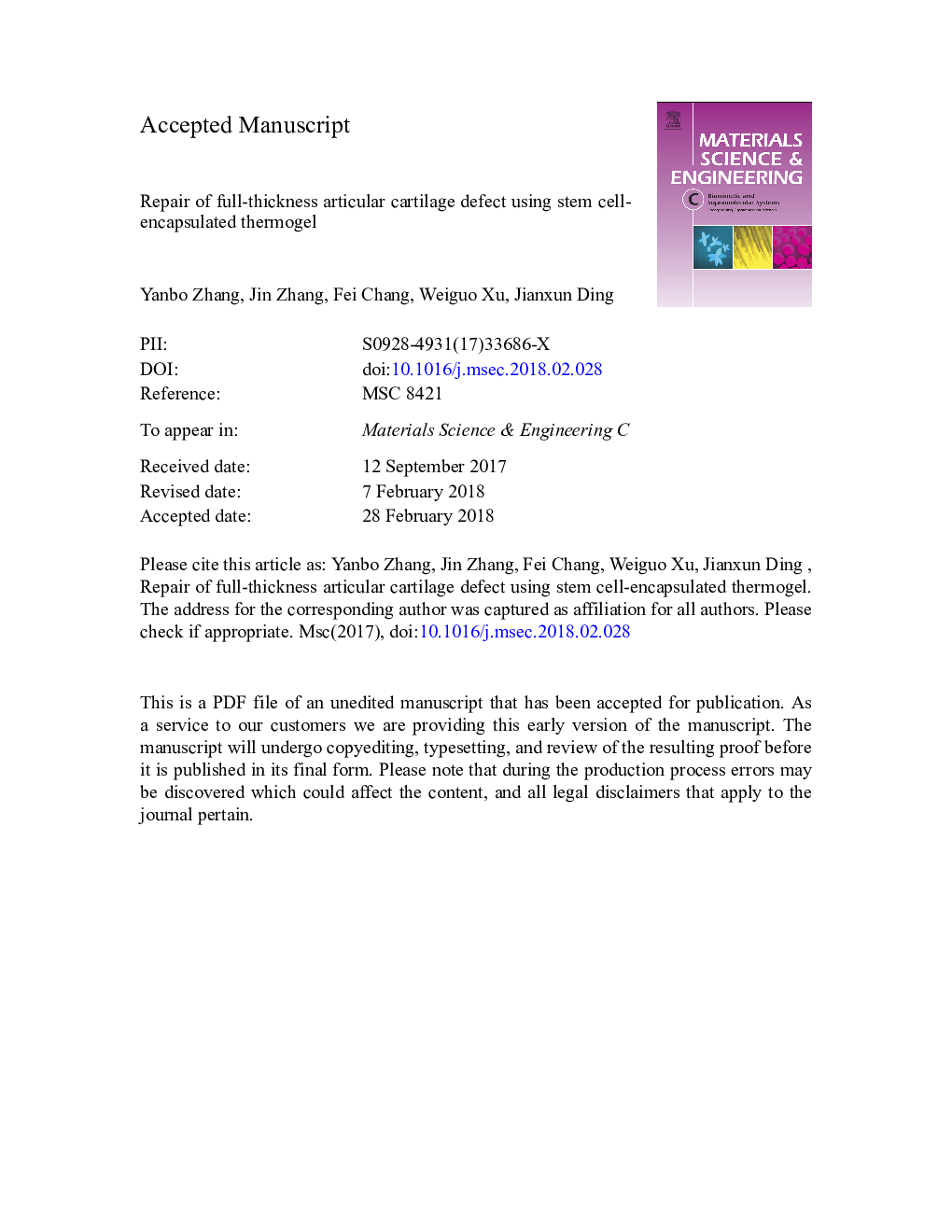| Article ID | Journal | Published Year | Pages | File Type |
|---|---|---|---|---|
| 7866377 | Materials Science and Engineering: C | 2018 | 31 Pages |
Abstract
Cartilage defect repair by hydrogel-based tissue engineering is becoming one of the most potential treatment strategies. In this work, a thermogel of triblock copolymer poly(lactide-co-glycolide)-block-poly(ethylene glycol)-block-poly(lactide-co-glycolide) (PLGAâPEGâPLGA) was prepared as scaffold of bone marrow mesenchymal stem cells (BMMSCs) for repair of full-thickness articular cartilage defect. At first, the copolymer solution showed a reversible solâgel transition at physiological temperature range, and the mechanical properties of such thermogel were high enough to support the repair of cartilage. Additionally, excellent biodegradability and biocompatibility of the thermogel were demonstrated. By implanting the BMMSC-encapsulated thermogel into the full-thickness articular cartilage defect (5.0â¯mm in diameter and 4.0â¯mm in depth) in the rabbit, it was found that the regenerated cartilage integrated well with the surrounding normal cartilage and subchondral bone at 12â¯weeks post-surgery. The upregulated expression of glycosaminoglycan and type II collagen in the repaired cartilage, and the comparable biomechanical properties with normal cartilage suggested that the cell-encapsulated PLGAâPEGâPLGA thermogel had great potential in serving as the promising scaffold for cartilage regeneration.
Related Topics
Physical Sciences and Engineering
Materials Science
Biomaterials
Authors
Yanbo Zhang, Jin Zhang, Fei Chang, Weiguo Xu, Jianxun Ding,
